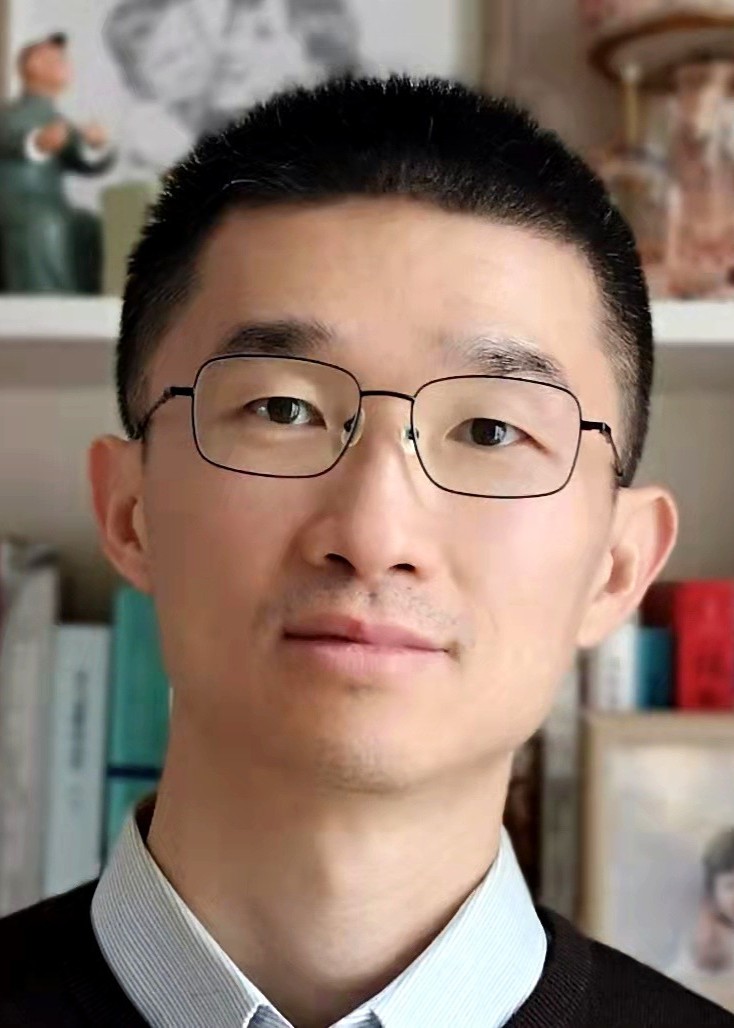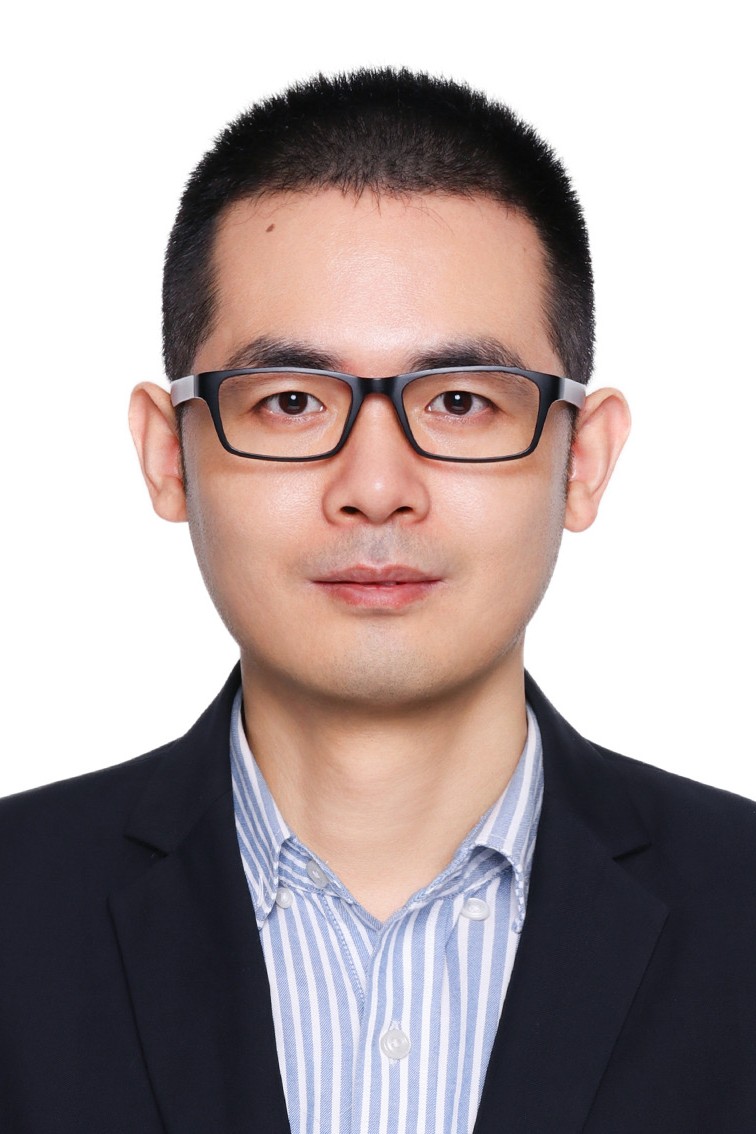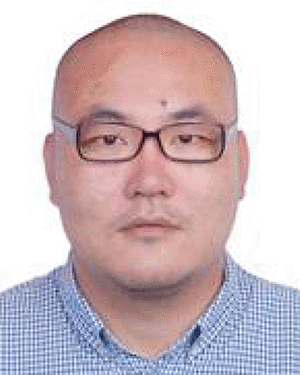More information will be released soon.
CRC 2025 Invited Speakers

Prof. Junyi Cao, Xi'an Jiaotong University, China
Biography: Junyi Cao is a Full Professor of Mechanical Engineering with Xi'an Jiaotong University, Director of Institute of Design Science, and Associate Editor of IEEE Journal of Biomedical and Health Informatics, and Vice Chairman of Shaanxi Vibration Engineering Society. His research interest includes intelligent maintenance of industrial robot and equipment, and wearable intelligent diagnosis and treatment. He has published over 100 academic papers (h-index 48) and received Elsevier Highly Cited Chinese Researchers, First Prize of MOE Award, Shaanxi Higher Education Science and Technology Award. His PhD students’ researches received ASME Journal Best Paper Award, IOP Best Poster Award, GE Science and Technology Innovation Fund Award.
Speech Title: Intelligent Fault Diagnosis Investigation from Industrial Robot to Human

Prof. Hao Yang, Nanjing University of Aeronautics and Astronautics, China
Biography: Hao Yang received the B.Sc. degree in electrical automation from Nanjing Tech University, Nanjing, China, in 2004, and the Ph.D. degrees in automatic control from Université de Lille 1: Sciences et Technologies, Lille, France, and Nanjing University of Aeronautics and Astronautics (NUAA), Nanjing, both in 2009.,Since 2010, he has been working with the College of Automation Engineering, NUAA, where he has been a Full Professor since 2015. His research interest includes control, optimization, game and fault tolerance of switched and network systems with their aerospace applications. Dr. Yang was the recipient of the National Science Fund of China for Excellent Young Scholars in 2016, and the Top-Notch Young Talents of Central Organization Department of China in 2017. He has served as Associate Editor for Nonlinear Analysis: Hybrid Systems, Cyber–Physical Systems, Acta Automatica Sinica, and Chinese Journal of Aeronautics. He is a member of the IFAC Technical Committee on Fault Detection, Supervision and Safety of Technical Processes.
Speech Title: Fault-Tolerant Flight Control From Switching and Network Perspectives
Abstract: Modern aircraft and spacecraft, both individual and swarm systems, exhibit increasingly complex dynamics. These dynamics demonstrate significant time-varying characteristics in the temporal dimension, presenting multi-dynamic switching behaviors, while in the spatial dimension, they show interconnections characterized by multi-system network coupling. Such spatial-temporal complexities pose serious challenges to fault-tolerant flight control, making traditional methods designed for single dynamics inadequate. This report examines the fault characteristics and challenging issues of fault-tolerant flight control from both switching and network perspectives. It elaborates on the core ideas, methodologies, and recent advances in reconfigurability analysis, fault-tolerant control, and fault-tolerant optimization design, along with their applications in flight control systems. Finally, the report concludes with future directions for this research area.

Prof. Xiuxian Li, Tongji University, China
Biography: Xiuxian Li is a professor with National Key Laboratory of Intelligent Autonomous Systems, College of Electronic and Information Engineering, and Shanghai Research Institute for Intelligent Autonomous Systems, Tongji University, Shanghai, China. His research interests include distributed control and optimization, game theory, and autonomous vehicles. He is in the best paper finalist of IEEE RCAR 2018 and the best paper recipient of IEEE ICCA 2025, etc. He is a member of the Technical Committee on Control Theory of Chinese Association of Automation, and a senior member of IEEE.
Speech Title: Fast Strategy-Computing Algorithms for Swarming Games with Coupled Constraints
Abstract: Game theory is one of the important methods for swarming intelligent decision-making, widely used in many fields such as economics, politics, industry, military, and artificial intelligence. Among them, fast computation of Nash equilibrium is a key issue in intelligent game decision-making. Along this line, this talk will report on the design methods of distributed discrete-time algorithms from three aspects: Stackelberg aggregative games, multi-cluster games, and affine coupled inequality constrained games, as well as fast linear convergence analysis. It will also introduce their applications in scenarios such as lane changing of autonomous driving and two-team adversarial competitions.

Prof. Jie Mei, Harbin Institute of Technology, China
Biography: Jie Mei received the B.S. degree in Information and Computing Science from Jilin University, Changchun, China, in 2007, and the Ph.D. degree in Control Science and Engineering from the Harbin Institute of Technology, Harbin, China, in 2012. He was an exchange Ph.D. student supported by the China Scholarship Council with the Department of Electrical and Computer Engineering, Utah State University, Logan, UT, USA, from 2009 to 2011. He held postdoctoral research positions with the Harbin Institute of Technology Shen zhen Graduate School, Guangdong, China, the City University of Hong Kong, Hong Kong, China, and the University of California at Riverside, Riverside, CA, USA, from 2012 to 2015. Since June 2015, he has been with the School of Intelligence Science and Engineering, Harbin Institute of Technology, Shenzhen, Guangdong, China, where he is currently a Professor. His current research interests include coordination of distributed multi-agent systems, perception, planning and control of intelligent unmanned vehicles, and their applications.
Speech Title: Adaptive Consensus of Uncertain Multi-agent System over Directed Graphs
Abstract: Due to the non-symmetric property of the associated Laplacian matrix and the existence of uncertainties in the agent dynamics, the leaderless consensus problem of uncertain multi-agent systems under general directed graphs is challenging. Motivated by the classical model reference adaptive control, in this report, we will introduce a simple yet efficient scheme, called the model reference adaptive consensus, by arranging each agent a reference output to track, where the output is generated by a linear reference model with the relative state measurements as input. We will show the consensus results on typical agent dynamics, namely, the general linear dynamics with matching uncertainties, Lagrangian systems, and high-order dynamics, with considering certain problems including general switching directed graphs, state constraints, output feedback, and distributed Nash equilibrium seeking.

Prof. Yueying Wang, Shanghai University, China
Biography: Yueying Wang (Senior Member, IEEE) received the Ph.D. degree from Shanghai Jiao Tong University, Shanghai, China, in 2015. He is currently a Professor with the School of Mechatronic Engineering and Automation, Shanghai University, Shanghai. His research interests include intelligent and hybrid control systems, and control of autonomous systems.
Speech Title: Research Progress in Several Directions of Unmanned Surface Vessels
Abstract: This report presents the progress achieved by our research team in recent years in several research directions centered on unmanned surface vessels (USVs), including intelligent control and path planning of USVs, swarm cooperative formation and game theory of USVs, intelligent perception in water areas, and the research and development of dual-mode navigation and long-endurance USVs.
